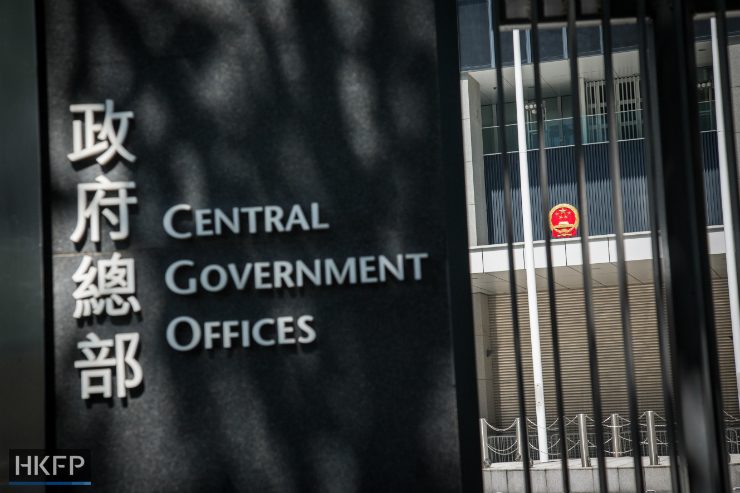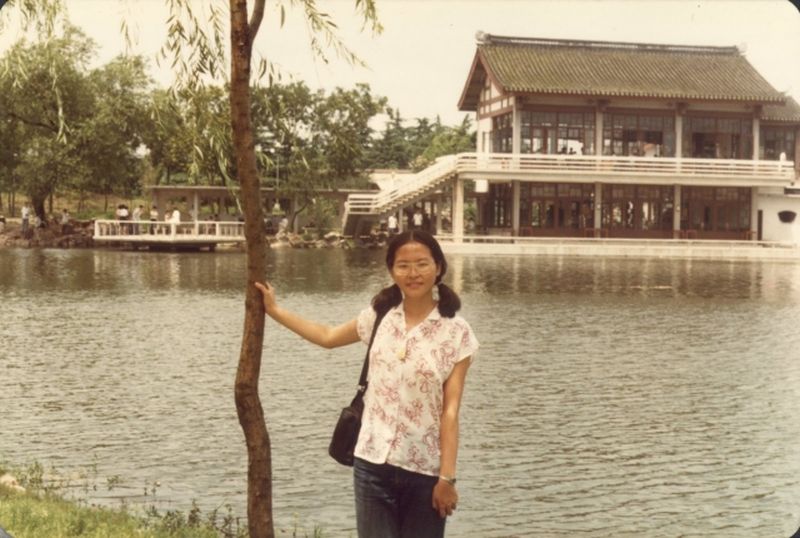“In the eyes of the central government, I am someone who can be trusted, and this is not simply because I came out and ran in this election.”
“This is because I am someone who has worked in the civil service for 36 years. Over the past four-and-a-half years, I was the chief secretary of the Hong Kong Special Administrative Region.”
That Hong Kong’s chief executive-elect Carrie Lam chose to emphasise her civil service credentials following her small-circle election victory last Sunday was no surprise. She had been lagging in popularity behind rival John Tsang, whose support crossed the traditional boundary between the pro-establishment and pro-democracy camps.

Beijing’s henchmen were not as familiar with her as they were with predecessor Leung Chun-ying, who had participated in mainland affairs and in drafting the Basic Law while still in his 20s.
Experience in the civil service, however, was one big asset. Over the course of Lam’s 36 years in government, Hong Kong’s civil servants managed to rid themselves of their corrupt reputation, and become “without any question the most competent” that final British governor Chris Patten claimed he had ever worked with. They now number 160,000, some 4 per cent of the city’s workforce.
See also: Chief exec. elect Carrie Lam pledges unity; will visit local China offices after touring districts
Aside from high salaries and stable career prospects, underpinning the successes of the civil service were a set of values and principles. In a series of interviews with online media outlet Stand News last year, some officials chose to emphasise political neutrality, while others believed that adherence to set procedures was of utmost importance.
Yet Hong Kong’s chief executive-elect has been accused of violating these same values and principles as she rose to the top of the government.

A week before the election, local paper Apple Daily published an open letter penned apparently by a high-ranking civil servant. In 19 paragraphs, the letter accused Lam of being an authoritarian, bypassing government procedures in order to achieve her goals. Rumours surfaced the following day that she was also a disciplinarian, criticising her underlings to such a degree that they burst into tears.
Lam vehemently denied the rumours, saying that “she was used to groundless fabrications.” Nevertheless, they added to the fears that – as election rival Tsang had claimed in a televised debate – she would not only become “CY 2.0”, but also “divisiveness 2.0”, continuing her predecessor’s legacy.
Hong Kong’s first female leader may be a product of its famed civil service system, but has she also contributed to undermining it?
***
Cheng Yuet-ngor was raised in humble surroundings. Speaking to RTHK in 2013, she said that she grew up in a lower-class family in Wan Chai. Though the family did not own a desk, she completed her homework on the bed and she constantly ranked top of her class. She became an administrative officer after she graduated from the University of Hong Kong.
Administrative officers represent the elite within the Hong Kong civil service. They are responsible for policy-making, and currently earn a starting monthly salary of HK$49,445. In 1982, the colonial government sponsored her further studies at the University of Cambridge in the UK, where she met mathematician Lam Siu-por. Two years later she became Carrie Lam.
Lam progressed rapidly up the ranks of the government following the 1997 handover. At the turn of the millennium, she became director of the Social Welfare Department, before joining her husband for a short stint in the UK. In 2007, she left the civil service to become secretary for development – a politically-appointed position that lifted her into then-chief executive Donald Tsang’s cabinet.

Kwok, a retired civil servant who spent over 30 years in government, believed that Lam deserved her rapid ascent. “At the secretary level, almost every official is smart and capable,” he told HKFP – reserving criticism only for the unpopular education chief Eddie Ng. “Lam is someone who gets things done.”
An atypical official
Commenting on her rise, 30-year-old official Fiona told HKFP that Lam was not a typical conservative civil servant. “People think civil servants are lazy… As long as you don’t do anything new, you cannot get things wrong, and you won’t offend any new stakeholders.”
Lam, however, earned a reputation as a “fighter” after throwing herself on to the front line of various controversies, reiterating the government’s standpoints and refusing to back down. She faced off against conservationists during the 2007 demolition of the historic Queen’s Pier, and led five officials in a televised meeting with five student protesters during the 2014 pro-democracy Occupy movement (two officials did not even speak).
“In the past, very few senior officials would say ‘okay, let me come out and face you!’ [when there was controversy],” added retiree Kwok. “Civil servants normally don’t have to face the public apart from during public consultation. There are specific procedures… You can’t just walk in and say ‘I want to meet the director of your department!’”
Lam also had a reputation for executing difficult policies. Her first act as director of social welfare in 2000 was to implement the Lump Sum Grant system for government-subsidised NGOs, meaning that funds were granted based on the salary levels of civil servants of corresponding rank, rather than the NGOs’ actual expenditures. Critics argued that the move led to salary cuts and under-staffing in the social welfare sector.

Under Lam, the Development Bureau implemented the Revitalisation of Factory Buildings scheme, which facilitated the conversion of industrial units for commercial use, but triggered a wave of rent hikes. She also cracked down on illegal structures built on houses in the rural New Territories, causing residents to burn effigies of her in protest. Again, the “fighter” refused to back down.
“Traditionally, if we thought that we could not manage the opposition voices in a project, we wouldn’t do it at all,” said Fiona.
Kwok expressed reservations about Lam’s tenacious, hands-on attitude. “Some people might call [her style] ‘brave’ or ‘courageous,’ but I would only call it ‘new’ or ‘innovative.’”
“The main question is whether it achieves results.”
Continue to Part II: Undermining the system?
The names of sources in this article have been changed to preserve their anonymity.
